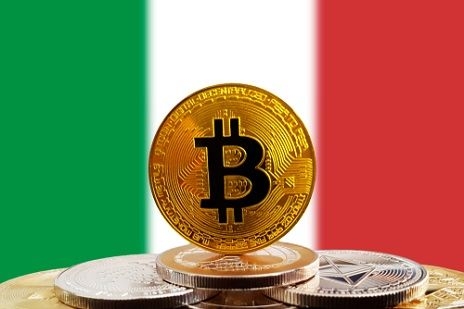Editor's Note: With so much market volatility, stay on top of daily news! Get caught up in minutes with our speedy summary of today's must-read news and expert opinions. Sign up here! (Kitco News) - In an effort to prepare for the eventual passage of the Markets in Crypto-Assets (MiCA) regulation across the European Union, the Bank of Italy has begun to set up its supervisory environment and is looking for new ways to integrate distributed ledger technology (DLT), according to central bank governor Ignazio Visco. Visco made the comments during a speech at the 29th Assiom Forex Congress on Saturday.
The central bank governor highlighted the benefits that DLT offers, such as cheaper cross-border transactions and increased financial system efficiency. “The Bank of Italy is focusing on the need to identify areas in which new distributed ledger technologies (DLTs) can contribute to the overall stability of the financial system and to customer protection,” Visco said. He went on to note that in November, the central bank published Milano Hub's second call for proposals on the application of DLTs to banking, financial, insurance and payment services. “This project aims to disseminate best practices among market participants in order to promote, above all else, the reliability of DLT governance, the robustness of settlement mechanisms and of internal risk management controls, and the technical and legal certainty and security of operations,” he said. Visco indicated that this call for action – which was closed a few days ago – received a total of 56 project proposals from 81 participants, including several applications from other European countries and Southeast Asia. The submitted proposals are currently under evaluation, and the bank is also working on developing technological solutions and defining a comprehensive framework of standards at the European and global levels that will facilitate the safe use of DLTs and their applications. “We have devised a 'trigger' solution that allows the use of central bank money for settling trades in securities on DLT-based platforms,” Visco explained.
The central bank is collaborating with the Italian securities market regulator CONSOB and the Ministry of Economy and Finance to initiate the “authorization and supervision activities” of MiCA, he said. The Bank of Italy is also helping develop standards at a global level, working in conjunction with the Basel Committee to develop standards for the prudential treatment of bank exposures in crypto-assets. It has also worked with the Financial Stability Board to help develop the general recommendations for these markets and craft recommendations for global stablecoins, which are set to be published in mid-2023. Overall, Visco called for the creation of an appropriate set of rules to distinguish between “highly risky instruments and services that divert resources from productive activities and collective well-being, such as crypto-assets with no intrinsic value, and those that can bring tangible benefits to the economy, such as reducing the costs of cross-border payments and making the financial system more efficient.”
“The spread of the latter can be fostered by developing rules and controls similar to those already enforced in the traditional financial system; the former, instead, must be strongly discouraged,” Visco said. In December, Italy released its 2023 budget plan, which includes a 26% tax on capital gains earned from digital asset sales where the profit exceeds 2,000 euros ($2,062.30). The bill also gives taxpayers the option to declare the value of assets as of Jan. 1, 2023, paying a 14% tax. It was designed in this manner in an effort to encourage Italian citizens to declare their digital asset holdings on their tax returns. Italy’s economy was largely unaffected by the struggles that the crypto market experienced in 2022 due to the limited interconnections with traditional financial intermediaries, the payments system, and the real economy. Visco estimated the number of Italian households that own crypto assets at 2% and said those holdings were “modest amounts on average,” while the “exposure of Italian intermediaries to these markets is also very limited.”
Source : [Bank of Italy is readying its economy to integrate blockchain](news.google.com/rss/articles/CBMiaGh0dHBzOi8vd3d3LmtpdGNvLmNvbS9uZXdzLzIwMjMtMDItMDYvQmFuay1vZi1JdGFseS1pcy1yZWFkeWluZy1pdHMtZWNvbm9teS10by1pbnRlZ3JhdGUtYmxvY2tjaGFpbi5odG1s0gEA?oc=5) undefined - Kitco NEWS / February 07, 2023
